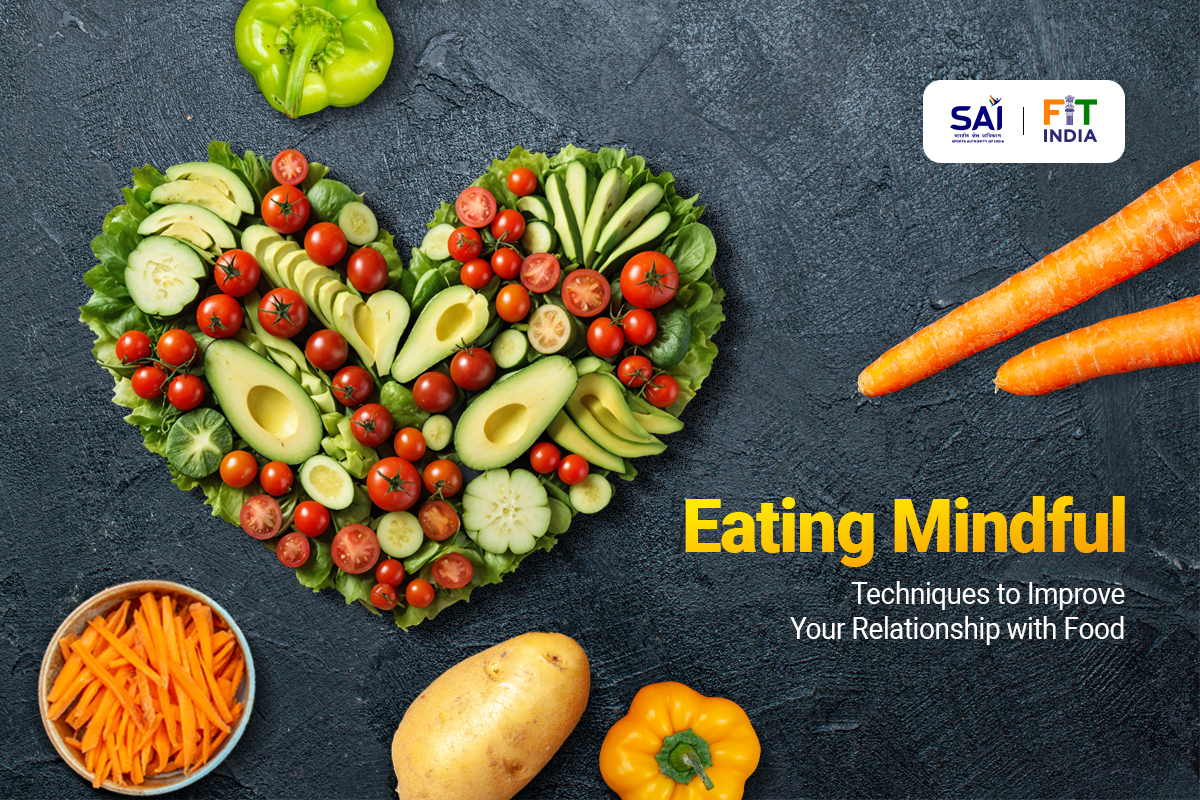<p>Nutrition and health go hand in hand. Integrating healthy eating habits into your daily routine will strengthen your fitness journey. Additionally, having a healthy diet will support your yoga practice, which will further enhance your overall health. The Fit India App offers many resources to help you align your dietary choices as well as with your yoga goals. By using this app, you can effectively track your consumed calories and yoga sessions that will take you closer to your fitness goals. Here are a few tips to introduce healthy eating habits for yoga practitioners.</p> <p><strong>1. Prioritize Balanced Meals</strong></p> <p><strong>• Focus on Nutrients:</strong> It is vital to consume meals that include a mix of proteins, carbohydrates, healthy fats, and vitamins. For example, you can eat lean proteins (like chicken or tofu), whole grains (such as quinoa or brown rice), and healthy fats (like avocados and nuts).</p> <p><strong>• Portion Control:</strong> This is key to weight management. Pay attention to portion sizes to avoid overeating. Balanced meals will keep you energized.</p> <p><strong>2. Hydrate Adequately</strong></p> <p><strong>• Water Intake:</strong> Staying hydrated is essential. Proper hydration supports muscle function and overall health. The average daily water intake recommended for adults is Men: About 3.7 liters & Women: About 2.7 liters.</p> <p><strong>• Pre- and Post-Yoga:</strong> Consume water before and after your yoga practice to replenish fluids lost through sweat.</p> <p><strong>3. Choose Whole Foods</strong></p> <p><strong>• Minimize Processed Foods:</strong> Go for whole, unprocessed foods that are rich in nutrients. Fresh fruits, vegetables, nuts, seeds, and whole grains should be included in your diet.</p> <p><strong>• Avoid Heavy Meals Before Practice:</strong> It is advised to go for lighter meals or snacks before yoga to avoid discomfort. For example, include a small smoothie, a piece of fruit, or a handful of nuts.</p> <p><strong>4. Include Anti-Inflammatory Foods</strong></p> <p><strong>• Reduce Inflammation:</strong> Foods with anti-inflammatory properties can help reduce muscle soreness and improve recovery. Include foods like berries, turmeric, ginger, and leafy greens in your diet.</p> <p><strong>• Healthy Fats:</strong> Incorporate sources of omega-3 fatty acids, such as flaxseeds, chia seeds, and fatty fish, to support joint health and reduce inflammation.</p> <p><strong>5. Mindful Eating</strong></p> <p><strong>• Eat Mindfully:</strong> Practice mindfulness by eating slowly and listening to your body's hunger. This approach promotes better digestion and prevents overeating.</p> <p><strong>• Enjoy Your Meals:</strong> Take the time to enjoy your food and make mealtime a pleasant experience. This will ensure that you have a good relationship with food.</p>



